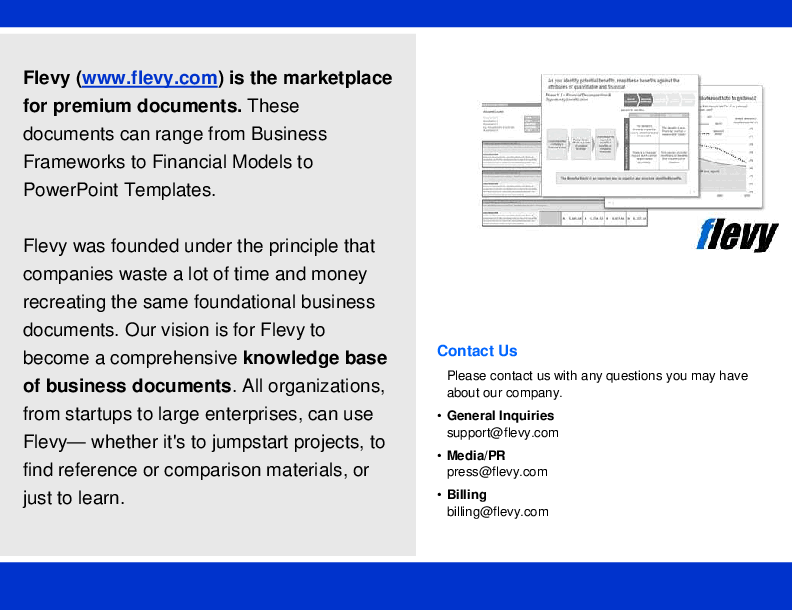Design Thinking Poster (PDF)
PDF document + PowerPoint (PPTX) 3 Pages
BENEFITS OF THIS PDF DOCUMENT
- Provides a summary of the five phases of Design Thinking based on the Stanford University's model.
- Serves as a complementary tool for your Design Thinking workshop session.
- Print the poster in A3/A4 size right out from your office copier machine.
SERVICE DESIGN PDF DESCRIPTION
The Design Thinking Poster describes the five phases of creative problem-solving and innovation based on the Hasso Plattner Institute of Design (Stanford University) model.
The poster focuses on three key groups of information that are essential to Design Thinking practitioners:
• Phase objectives
• Phase activities
• Phase deliverables
Overall, the Design Thinking Poster is a useful tool for design thinking users who are looking for an easy-to-use reference guide to help them navigate through the five phases of the creative problem-solving and innovation process.
The Design Thinking Poster is available in two distinct themes: a vibrant color scheme and a professional monochrome version. In both formats, the poster comes in a convenient PDF as well as an editable PPTX format, enabling effortless printing on A3/A4-sized paper from standard office copier machines. This versatile resource can be prominently displayed on employee workstations or distributed alongside Design Thinking training materials.
Furthermore, the Design Thinking Poster is an ideal supplement to design-related training presentations. It serves as a valuable takeaway, summarizing the core principles of Design Thinking and reinforcing the key takeaways from your training.
Description of the Design Thinking Poster:
1. EMPATHIZE
Phase Objective: Learn about the audience for whom you are designing, by observation and interview.
Phase Activities:
• User interview
• Informal chats
• Observation
• Shadowing
• Mystery shopping
• Picture-taking
• Immersion
Phase Deliverables:
• Personas
• Empathy map
• List of user feedback
• Problems identified
2. DEFINE
Phase Objective: Create a point of view that is based on user needs and insights.
Phase Activities:
• Workshops
• Stakeholder meetings
• Focused groups
Phase Deliverables:
• Design brief (including Point of View and How Might We statements)
• Stakeholder map
• Context map
• Customer journey map
• Opportunity map
3. IDEATE
Phase Objective: Brainstorm and come up with as many creative solutions as possible.
Phase Activities:
• Ideation activities
• Brainstorming
• Workshops
• Mindmaps
• Sketching/drawing
Phase Deliverables:
• Ideas / concepts
• Sketches
• Prioritization map
• Affinity map
• Idea evaluation
4. PROTOTYPE
Phase Objective: Build a representation of one or more of your ideas to show to others.
Phase Activities:
• Space prototyping
• Physical/digital prototyping
• Paper construction
• Wireframe building
• Storyboards
• Role-plays
Phase Deliverables:
• Physical/digital prototypes
• Wireframes
• Storyboards
5. TEST
Phase Objective: Share your prototyped idea with your original user for feedback.
Phase Activities:
• User testing
• Observation
• Picture-taking
• Evaluation
• Discussion
Phase Deliverables:
• List of user feedback
• Observation
• Evaluation map
• Proposed refinement
The poster includes detailed visual aids that break down each phase into actionable steps, making it an indispensable tool for quick reference during workshops or brainstorming sessions. Designed with the busy executive in mind, it ensures that critical information is easily accessible, facilitating seamless integration into your strategic planning processes.
Got a question about the product? Email us at support@flevy.com or ask the author directly by using the "Ask the Author a Question" form. If you cannot view the preview above this document description, go here to view the large preview instead.
Source: Best Practices in Service Design PDF: Design Thinking Poster PDF (PDF) Document, Operational Excellence Consulting


